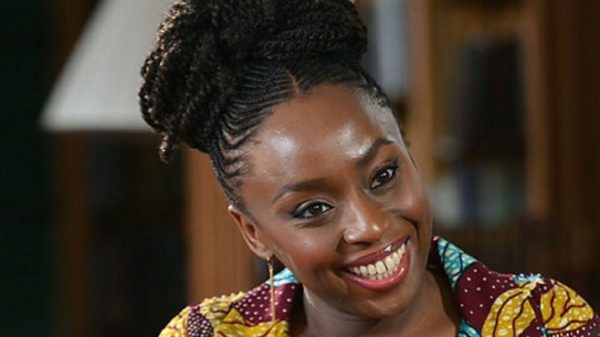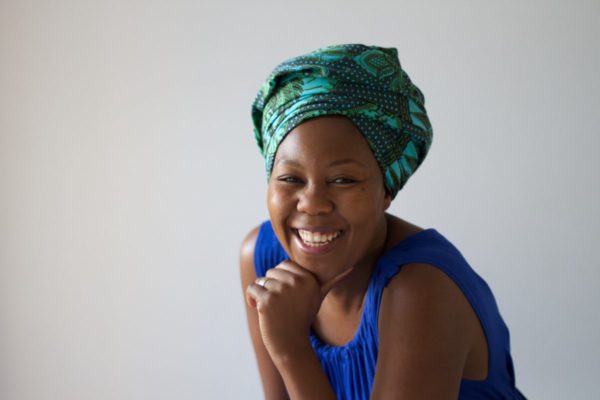
In the last five years, Chimamanda Ngozi Adichie has come to occupy a unique place in the pop culture conversation: the black African female feminist celebrity-writer whose words have either inspired or been cited by Beyonce, Oprah Winfrey and Michelle Obama, the fashion powerhouse Christian Dior, and the make-up company Boots No 7. Because of her position, she has become the go-to person in the resurgent feminist conversation, and a popular one also. Which is why it seemed strange how swift and forceful the criticism was after her comments on Channel 4 News about the place of trans women in feminism were interpreted as transphobic.
This strangeness, how the swift and forceful criticism built up, is what Sisonke Msimang just explained. In an illuminating piece titled “All Your Faves Are Problematic: A Brief History of Chimamanda Ngozi Adichie, Stanning, and the Trap of #BlackGirlMagic,” Msimang traces Adichie’s rise to this position, not only in her professional achievements but in the emotional attachment that fans have created for her in the era of #BlackGirlMagic, the ideology adopted in the celebration of black women’s achievements. Msimang analyses how, being a “spokesperson” for feminist and political issues, this kind of unprecedented influence renders her vulnerable to a modern culture of stanning which seeks to elevate certain figures when they take bold steps, only to problematise those same figures if ever they misstep. This, she lays out brilliantly, is the case with the criticism she received for her “conservative feminism” in trans women’s issues. Sisonke Msimang, meanwhile, is chair of the inaugural Gerald Kraak Award judges.

Here is an excerpt.
Adichie’s arrival on the literary scene was heralded with much excitement because she was precisely the sort of writer many women of my generation needed, and ours was a powerful and unique generation. Born after colonialism had ended we were free and the continent in which we grew up was still gleaming with possibilities. Although by the time I was thirty, Africa was seen as a “basket-case,” the Africa of my childhood was not yet a failure. Adichie found a way to articulate that. She was writing the kind of books many of us had been wanting to read. She represented the future so many of us had known as children.
I had not yet thought I might pursue writing in any serious way, but I saw myself as the sort of confident young woman whose ideas might matter and be taken seriously. Before her, I had devoured the books of Miriama Ba and Tsitsi Dangaremba and Sindiwe Magona and a host of African women whose writing had been crucial to my intellectual formation. Yet none of them were my contemporaries. None had come of age alongside me in the way Adichie was doing. I saw myself in the worlds she created, but I also saw myself as a fellow traveller, as someone who was striking out a new path in her field. I was doing what she was doing in a sense, just in my own small professional patch.
In many ways then Adichie occupied a unique place in contemporary black women’s thought and literature for at least a decade before the phrase black girl magic was coined as a hashtag, and as the motto for a new generation’s struggle for recognition and self-love.
Adichie is African of course, but because she began writing in a world that was more global than it had ever been, because she traveled so frequently between Nigeria and America, she was easily claimed as a member of a much larger global African diaspora. She may technically belong to two countries, but she is collectively seen as a daughter or a sister to black people in a broader sense.
In other words, Adichie has become a signifier for something larger than herself. In some ways, she has marked the rise of what Taiye Selassie calls, “the Afropolitan.” The phrase is problematic, and I use it fully aware of its complications. Still, part of the Adichie phenomenon has been the sense for many Africans who are similarly located as citizens of Africa as a concept, that if success was possible for her in the world of arts and letters, then surely, we might all succeed in the various new terrains we sought to master – from engineering to cosmetic surgery to venture capital.
And it was when we began to project our dreams onto her that loving Adichie the symbol – rather than her books – became murky. This is not unique to Adichie, but it provides a stark example of the limits of black girl magic. It plays in the dangerous terrain in which we accept that, “there is some sort of inherent connection between all brown-skinned persons. We know something. We necessarily connect…[A]ll group identities are constructed. However, some group identities run away with us. Some become harmful, or even work against the purpose they were created to defeat…[T]he “Afropolitan” is just such a group identity. It is exclusive, elitist and self-aggrandizing.”
By the time Adichie’s “Danger of a single story” TED talk was released, she was already flirting with fame. The talk has been viewed millions of times and it helped her to take the first serious steps towards genuine fame. It became a manifesto, a sort of treatise for a new generation of feminists of all races but of a very particular class background, who were looking for more complicated ways of understanding the world than their mothers had been able to provide.
Both in its substance and in its form, the talk laid the foundation for the sort of hero Adichie would be. She was at once acceptable – pretty and made up but not too much – and rebellious. She broke the rules by not memorizing the talk. She read her talk because she was not the sort who would be pushed to adhere to silly rules about how to give good TED talks. She stood in jeans and a head-wrap and read her comments. The ease of her words, and the commonsense style of her delivery were at once charming and intimidating. Adichie was haughty and no nonsense and infinitely poised in a way that was instantly recognizable to me as a middle class African woman who had met many women raised in Adichie’s mold. She was not a new phenomenon to me, she was simply a newly celebrated phenom, and I allowed myself the indulgence of enjoying the moment as though it were my own.
The talk cemented her status as the sort of intellectual rock star, the kind of literary and cultural maven many of us had been looking for.
Read “All Your Faves Are Problematic: A Brief History of Chimamanda Ngozi Adichie, Stanning, and the Trap of #BlackGirlMagic,” in Africa Is a Country.








Sisonke Msimang debut memoir ALWAYS ANOTHER COUNTRY is out! – Afrikáná October 03, 2017 10:36
[…] essay in the wake of Chimamanda Ngozi Adichie’s criticized comments on trans women and feminism: “All Your Faves Are Problematic: A Brief History of Chimamanda Ngozi Adichie, Stanning, and the Tr… She chaired the judging panel of the inaugural Gerald Kraak […]